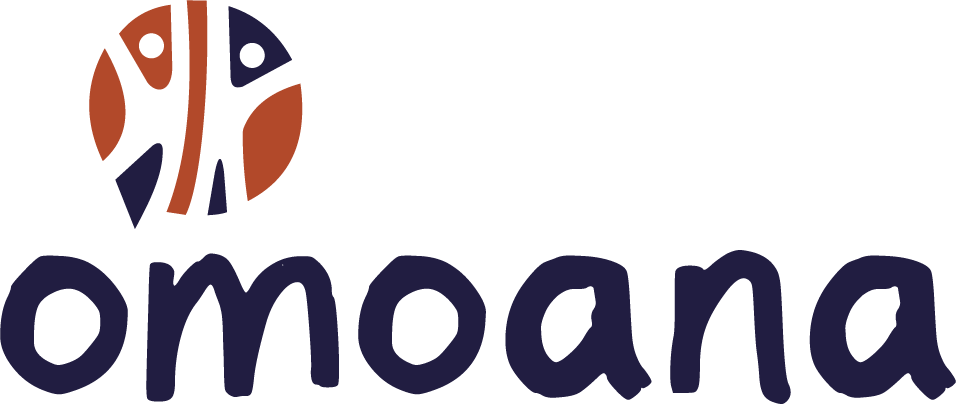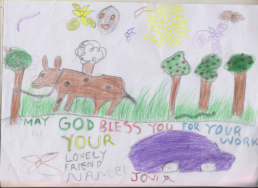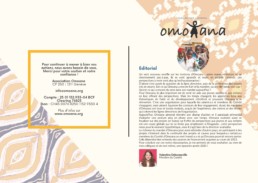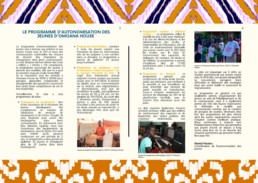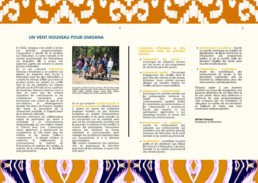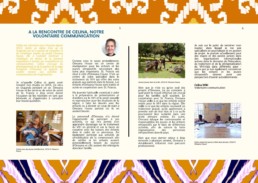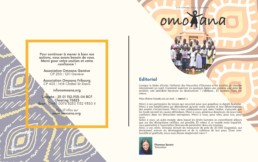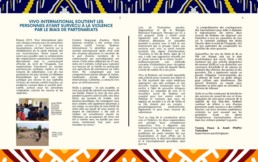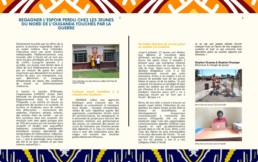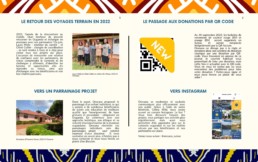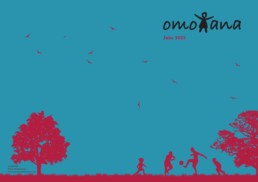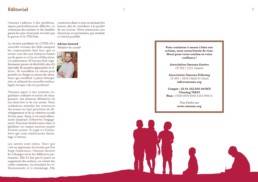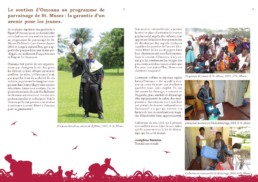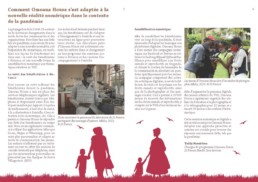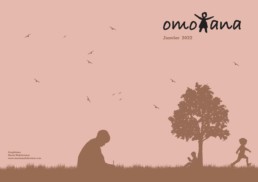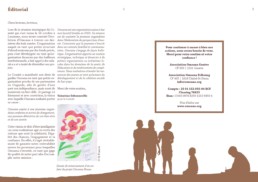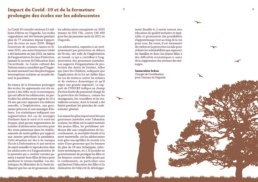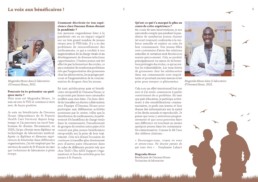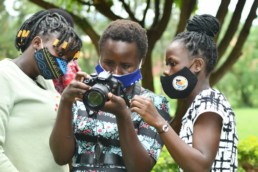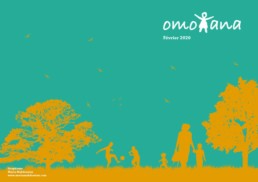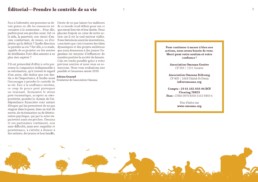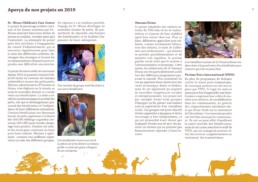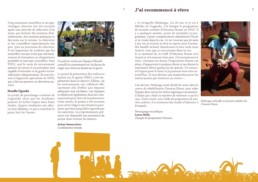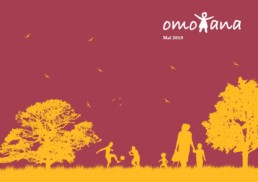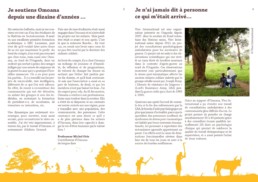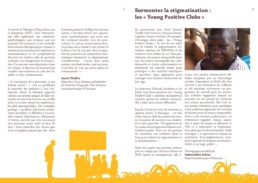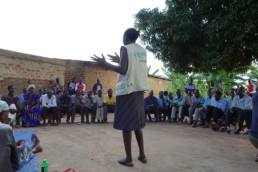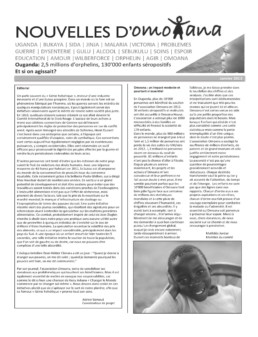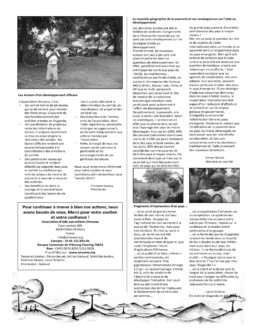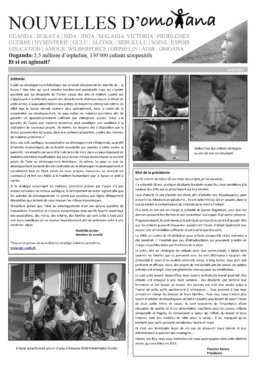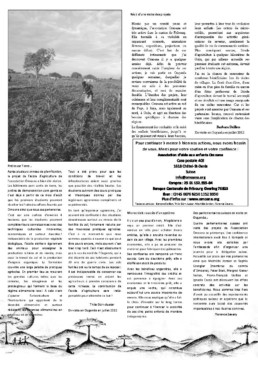Uganda faces the Covid-19 pandemic
Between April and July this year, Uganda experienced a rising rate of Covid-19 infections. This put a strain on the country’s health system, as evidenced by the number of deaths and hospitalisations linked to Covid-19. At the beginning of June, a national lockdown was declared for a period of six weeks. This measure enabled the country to control the rate of infection among the population and to provide healthcare for the most seriously ill.
Today, the country is opening up again. The infection rate has fallen from 21% to 8%, the number of deaths is down and the population is more respectful of preventive measures. The lifting of confinement at the end of July has enabled the transport sector and certain commercial sectors to start operating again. However, other sectors remain closed, including educational establishments, social and religious community gatherings and the entertainment and leisure sector.
Vaccination of the population is underway, with priority given to essential workers and people suffering from chronic illnesses. The government’s objective is to vaccinate 50% of the Ugandan population to enable the country to control the infection rate. However, to date only 1.2% of the population has been vaccinated. Funds to help victims of the pandemic have been paid out to the most vulnerable people. 500,000 of them have received UGX 100,000 (USD 29) for one month. The government is also supporting research into national treatments for Covid-19. Clinical trials of Ugandan plant-based treatments (COVIDEX and COVICYLE) appear to be showing good results.
Impact of the pandemic on projects
The prolonged and repeated closure of schools has exposed children to problems such as child labour, teenage marriage, dropping out of school and violence, which seem to affect girls more than boys.
In this context, Omoana has encouraged its beneficiaries to adapt to virtual learning platforms provided by schools or the government, such as radio-based study programmes for primary school pupils and distance learning models for secondary and tertiary school pupils.
Our education project partners, St Moses and Handle Uganda, provided additional monitoring of students and tutors to avoid failures that could affect the continuation of schooling when the schools reopen.
The activities of Omoana House also had to be adjusted. Additional security measures were put in place to restrict access by outsiders to the rehabilitation centre in order to protect children at high risk of vulnerability to the virus (particularly HIV-positive children). Additional nutritional supplements were offered to the children to boost their immunity.
During this period, the health of the children reintegrated into their communities was closely monitored and antiretroviral treatment was provided to them at home by the Village Health Teams (VHTs). Peer educators also adapted by approaching beneficiaries directly on social networks (Facebook and Twitter), conducting targeted awareness campaigns and offering individual support.
The mental health project’s operations were mainly affected by restrictions on the number of passengers per vehicle and inter-regional transport. Activities such as community awareness-raising were interrupted due to the ban on gatherings.
Many beneficiaries also face mental health problems due to depression, stress and the stigma attached to people affected by Covid-19. There is a great deal of uncertainty about the country’s health and economic future.
Immaculate Achan
Country coordinator
Combating gender-based violence: getting men involved
Since January 2018, with the support of Omoana, Handle Uganda has been implementing a project to prevent gender-based violence. This helps to foster a family dynamic that is conducive to children’s well-being. Here is a description…
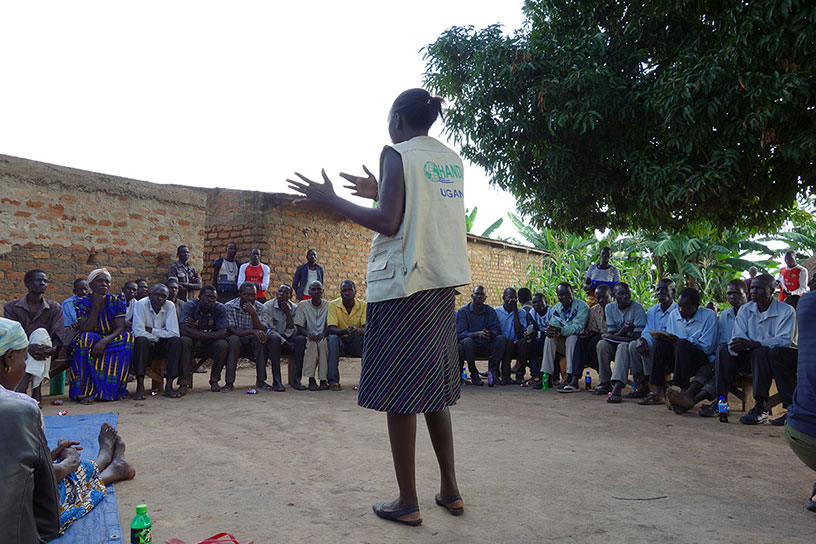
HANDLE Uganda is a small local NGO based in Gulu, northern Uganda, a region still coping with the devastating consequences of a twenty-year civil war. The organization has begun a three-year project in the Nwoya district to combat gender-based violence (GBV), which was widespread in northern Uganda during and after the conflict. This ambitious project is developing a multi-dimensional, holistic approach to tackling GBV at individual, family, community and local government levels.
In addition to various types of physical violence, GBV also takes the form of unequal access to land ownership and to different means of production and sources of income. To remedy this situation, HANDLE promotes women’s rights and equality with men by providing 300 women living in poverty with support in setting up village savings and credit associations (AVEC) to boost their financial literacy. In addition, the organization provides training and support in the creation and management of micro-enterprises.
The aim is to strengthen women’s financial independence in relation to men, so that they can become more autonomous and move towards a position of parity.
These women are also informed about their rights and what defines GBV, so that they can recognize the various forms of discrimination and violations against them. They receive information on what they can do if they or women around them are victims of GBV. They are also provided with the resources they need to access legal and medical services. To this end, HANDLE has a legal representative who supports victims by directing them to the appropriate services for the most serious cases, and by providing a mediation service for families in cases of marital disputes.
HANDLE also provides support in the event of land disputes, to limit the dramatic turn these often take. A mediation service is available to families and communities affected by such problems, as well as legal support if required. While denial of access to property is in itself an infringement of women’s rights, it often degenerates into physical violence, particularly in a population still traumatized by civil war. It is therefore important not to overlook this issue.
With men too…
The project is not limited to women, however. HANDLE also trains groups of male role models, made up of men of varying levels of influence and social background, from farmers to Rwotkweris (clan leaders). Three groups of thirty men each receive intensive training to act as vectors of change within their villages and communities. They learn about GBV, women’s rights and what they can do to influence and educate members of their community.
Each man is a role model for his family and neighbors, and works intensively with ten families in conflict situations, with a particular focus on GBV. The role models also receive basic training in counseling and conflict management in cases of GBV. They are also provided with bicycles to help them carry out their community mobilization and mediation duties.
HANDLE also works closely with local government, police and other stakeholders to strengthen its initiatives. In conjunction with the relevant authorities, the organization carries out important community awareness-raising work through cultural events. On these occasions, the various leaders speak out against GBV and inform their communities of its harmful consequences. Police forces, for their part, are trained on how to recognize cases of GBV and report the crimes committed, as well as on the importance of reporting cases as quickly as possible and preserving evidence, especially in cases of sexual violence.
HANDLE is looking forward to working with various partners and beneficiaries to improve the quality of life of women, men and children in their communities and help reduce GBV in the region.
Emma McGeachy
